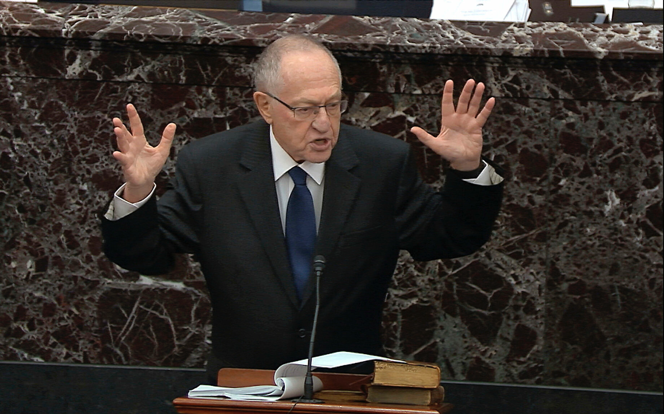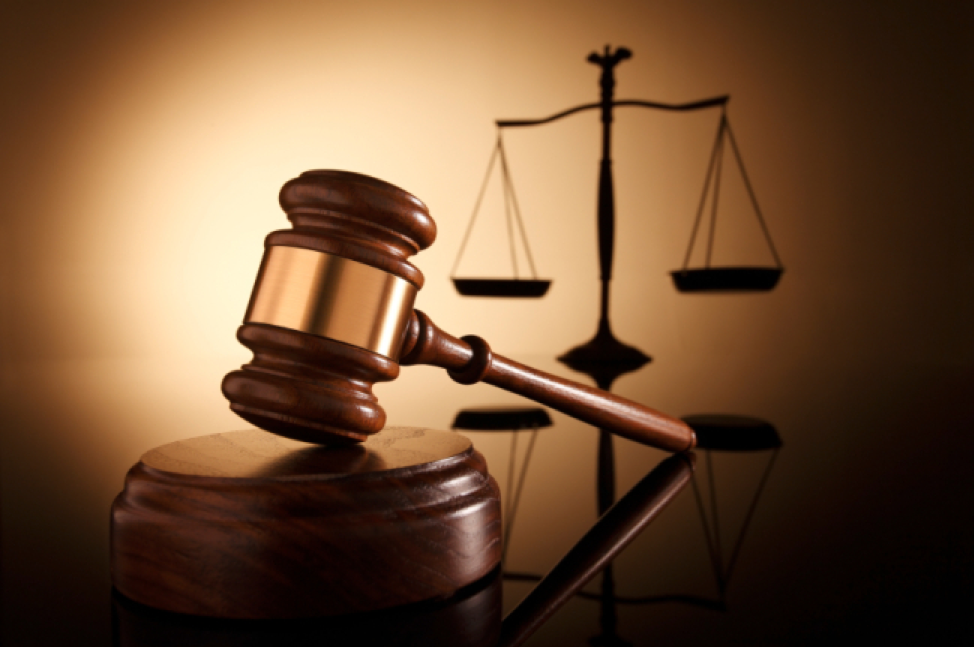
The foundation of the American system of criminal justice is the presumption of innocence, the right to a fair trial and the best defense available… but justice is not always blind. Race, wealth, age, prior history, and the integrity of the lawyers can all skew those principles and affect the outcome.
Standard 4-1.2 of the American Bar Association’s Criminal Justice Standards for the Defense Function, paragraph (b) states:
Defense counsel have the difficult task of serving both as officers of the court and as loyal and zealous advocates for their clients. The primary duties that defense counsel owe to their clients, to the administration of justice, and as officers of the court, are to serve as their clients’ counselor and advocate with courage and devotion; to ensure that constitutional and other legal rights of their clients are protected; and to render effective, high-quality legal representation with integrity.
Last week, the United States Senate sat as a jury to hear House managers present the case for Donald John Trump’s impeachment for “high crimes and misdemeanors.” Yesterday he was acquitted by a narrow 52 – 48 margin.
To defend himself, Mr. Trump had assembled a made-for-TV legal defense team. None were established criminal defense standouts but two were TV courtroom veterans. The first, Kenneth Starr, was Special Counsel and prosecutor in the impeachment of William Jefferson Clinton and the second, Alan Dershowitz, a former Harvard Law professor famous for representing such unsavory characters as OJ Simpson, Claus von Bulow, and Jeffrey Epstein.
Starr, it would seem, was window dressing at the impeachment trial, there to pronounce that “we are living in the age of impeachment”and to ask, “How did we get here, with presidential impeachment invoked frequently in its inherently destabilizing as well as acrimonious way?” As Vanity Fair noted, “For those of you who synthesize information best through historical antecedents, this is like Jeffrey Dahmer lecturing his peers for eating people. Or Adolf Hitler asking, “How did we get into this predicament where people don’t care for the Jews?” His Starr-turn was disingenuous, and he was quickly replaced in the lineup by the much more nefarious spin-ster, Mr. Dershowitz.
It was performance art on a grand scale. First, he introduced himself not as friend of the president, but as a Democrat who voted for Hillary Clinton–appearing for the president only to clarify the constitutional imperatives in question. But, if he’s a Democrat who voted for Mrs. Clinton, isn’t it odd he was invited to Christmas Eve dinner at Mar-a-Lago by a president famous for his hatred of Crooked Hillary?
Regardless, the Dershowitz spin went like this: “A president cannot be impeached unless he has committed a crime and no crime is alleged in Impeachment Article #1” and “If a president does something which he believes will help him get elected, in the public interest, that cannot be the kind of quid pro quo that results in impeachment.”
Incongurously, during the 1999 Clinton impeachment both Starr and Dershowitz argued that it was not necessary to allege or prove a crime. What’s different? Well, this time it’s not a cringe-worthy sexual act in the White House–it’s the president requesting a foreign government to interfere in our 2020 presidential election. Big difference.
The chutzpah is astonishing and legal scholars, including Lawrence Tribe, the Harvard Law School professor and foremost constitutional law scholar in America, were quick to point out that almost no one accepts the Dershowitz argument. As a lawyer, I read the testimony several times and couldn’t understand the circular, Byzantine reasoning or how he arrived at his conclusions. But I’m not alone; when real scholars challenged him he walked it back by claiming his remarks were misrepresented and throwing up a barrage of legal chaff based on “motives”, “mixed motives,” “matters of degree,” “preposterous examples,” and “complex issues the framers did not intend for impeachment.”
It was dazzling judicial theater, intended to conflate and confuse rather than convince, and I was reminded me of an article by Molly Roberts of the Washington Post written just after Jeffrey Epstein was arrested and jailed in 2019. What Alan Dershowitz Taught Me About Morality is her retelling of an experience as a Harvard student in a Dershowitz seminar in which he asked her the question “Where does your morality come from?”
Dershowitz has made a name for himself as an “intellectual provocateur.” In her article Ms. Roberts suggests that he has lost sight of the principles he originally championed, i.e. safeguarding civil liberties. Rather, he has made a name for himself gaming the system.
As Ms. Roberts points out, “Principles are important, but they can also be a distancing mechanism that permits us to maintain an aura of rectitude even as we go around behaving in ways that aren’t right at all. They can allow us to absolve ourselves for our actions by claiming they’re in service ot some metaphysical lodestar that supersedes any effect on real people in real life. Sometimes, we’re simply wrong—not just constitutionally, or legally, but ethically, too.”
Yes, every defendant is entitled to the best defense available, but as the professional standards state “Defense counsel have the difficult task of serving both as officers of the court and as loyal and zealous advocates for their clients…with integrity.” Given Mr. Dershowitz’s history, particularly his recent history as an advocate for Jeffrey Epstein and Donald Trump, it is arguable that principles have been sidelined and, like President Trump, gaming the system to win no matter the consequences is now his “lodestar.” Dershowitz once told The New York Times he regretted taking the Epstein case but told Ms. Roberts “I would do it again.”
Harking back to her seminar at Harvard, the Roberts Op-Ed ends with the following sentence, “There’s an answer to the question none of us students could reach all those years ago: Your morality comes from what you do.
































